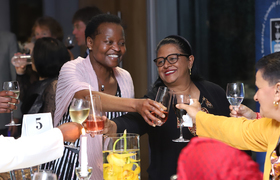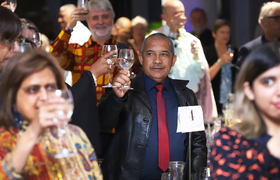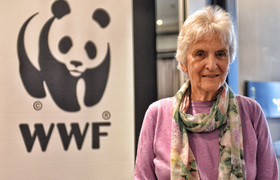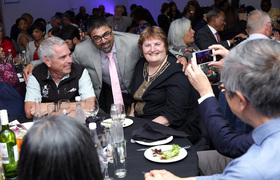UCT’s Prof Daya Reddy calls it a day
03 November 2020 | Story Niémah Davids. Photo Supplied. Read time 7 min.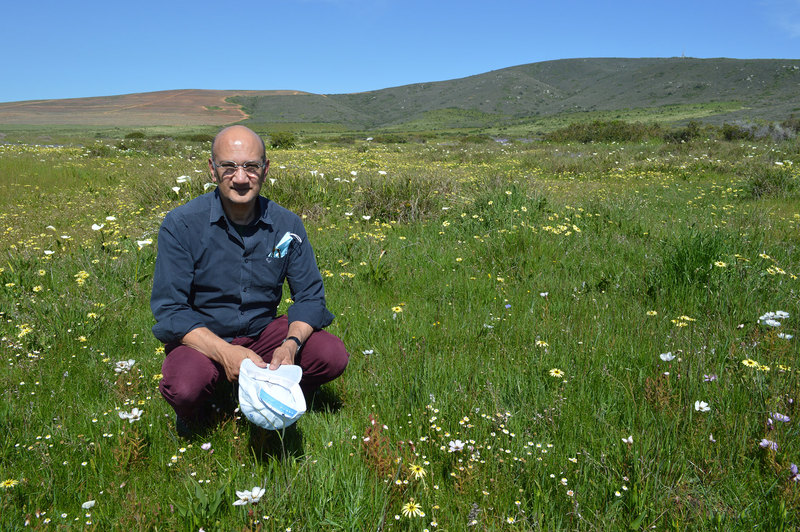
After more than four decades of illustrious service to the University of Cape Town (UCT) community, acclaimed scholar Professor Daya Reddy will bid the institution a fond farewell at the end of the year.
For Professor Reddy, retirement won’t just involve hours of reading, listening to music or travelling. While there will certainly be time for these leisure activities, there will also be a few spare hours in the day to continue his research.
Reddy is a professor in the Department of Mathematics and Applied Mathematics, and the director of UCT’s Centre for Research in Computational and Applied Mechanics. He also holds the South African Research Chairs Initiative (SARChI) Chair in Computational Mechanics. Reddy is extensively involved in bodies that work towards strengthening the scientific enterprise and providing science advice to policymakers. He currently serves as the president of the International Science Council, the largest non-governmental science organisation in the world.
“There are still lots of interesting questions to pursue.”
“There are still lots of interesting questions to pursue. Some on my own and some with my collaborators. It doesn’t end here. The work will continue for a while still,” he said.
Journey at UCT
Reddy completed his BSc in Civil Engineering at UCT in 1973, and after a brief stint as a postgraduate, he received a scholarship to pursue his PhD at the University of Cambridge in the United Kingdom.
In 1979 he returned to the Mother City after a postdoctoral year at University College London. Reddy remembers receiving “great encouragement” from the late Professor John Martin, the then head of UCT’s Department of Civil Engineering, to apply for a position as a lecturer.
And he did.
“My initial appointment at UCT was a joint one – in Civil Engineering and Applied Mathematics. This kind of appointment was quite novel, the brainchild of John Martin and [Emeritus Professor] George Ellis, the then head of Applied Mathematics. I remained in this position for eight years before my move fully to Applied Mathematics.”
Looking back, Reddy said, agreeing to take Martin’s advice set him on a career path that has brought much joy and fulfilment. He was promoted to full professor in 1989 and over the years accepted additional leadership and administration responsibilities, including as the head of the then Department of Applied Mathematics and the dean of the Faculty of Science. He has served on a number of faculty and Senate committees, as well as on UCT’s Council. Along the way, Reddy also acted as deputy vice-chancellor for research and internationalisation, and for teaching and learning.
“My research activity increased along the way, and with it came a greater number of postgraduate students and collaborators in South Africa and various parts of the world. Since being appointed to a SARChI Chair in 2007, my responsibilities have been entirely related to postgraduate supervision and research,” he said.
Then and now
Life on campus in the 1980s differed vastly from the way it is now. Everything was smaller and more intimate back then, Reddy recalled.
“We communicated in person or in writing [letters].”
Computers were non-existent, and communicating with an electronic device was an unthought-of concept.
“We communicated in person or in writing [letters]. Tea and lunchtimes were pleasant and social and provided a congenial environment in which to deal quickly with work-related issues,” he said.
Even typing an academic paper was a lot more complex.
“Secretaries typed our articles, and in disciplines like mine, it meant being proficient at swapping ‘golf balls’ in the typewriter for access to different fonts and symbols,” Reddy quipped.
This giant inconvenience at the hands of a typewriter meant that academics wrote a lot more carefully back then, he added. Revision and editing were “quite laborious”.
“A lot has changed since then.”
Positive change
Reflecting on the past few decades, Reddy said that UCT has become a more diverse institution.
“When I started, UCT was overwhelmingly white. Today, the institution has become more diverse across all categories of staff and, of course, the student body.”
The university’s increasingly strategic approach to academic planning has been a positive development. There’s also been “immense physical growth” across the university, making it “unrecognisable” when compared with the campus of his student years.
While UCT has come a long way with transforming its student body, there is work to be done with transforming the staff complement, particularly at senior levels.
“The institutional culture is also changing and is more inclusive and representative. This has to be something that we work on all the time, so that everyone feels a greater sense of belonging and sees UCT as a top institution at which they will succeed.”
The show must go on
He has one piece of advice for his successor: “We have great depth and an international reputation in the area of computational mechanics, as well as a track record of top students who have come to do postgraduate work with us.
“It is important to pursue the objectives of high-quality research and supervision of talented students.”
“It is important to pursue the objectives of high-quality research and supervision of talented students, and in this way enhance further the impact of our work in this area nationally and internationally.”
Reddy is the first to admit that his work has been an “all-consuming affair” and that there’s been little time for leisure. And while this new phase of his life means that his work will continue, he will also get to do more of what he enjoys outside of the office: more time with his family, cooking, travelling and lots of reading have been highlighted as musts.
When he can, he will also return to the piano, which he learned to play as an adult but has strayed from somewhat in recent years.
“I wish I could say I enjoy gardening, but I don’t. Though I do appreciate our lovely garden – the creative work of my wife, with my pitching in from time to time with unskilled support. I look forward to it all.”
In March 2021 Reddy will receive an honorary doctorate from Stellenbosch University for his valuable contribution to the field of science.
 This work is licensed under a Creative Commons Attribution-NoDerivatives 4.0 International License.
This work is licensed under a Creative Commons Attribution-NoDerivatives 4.0 International License.
Please view the republishing articles page for more information.







